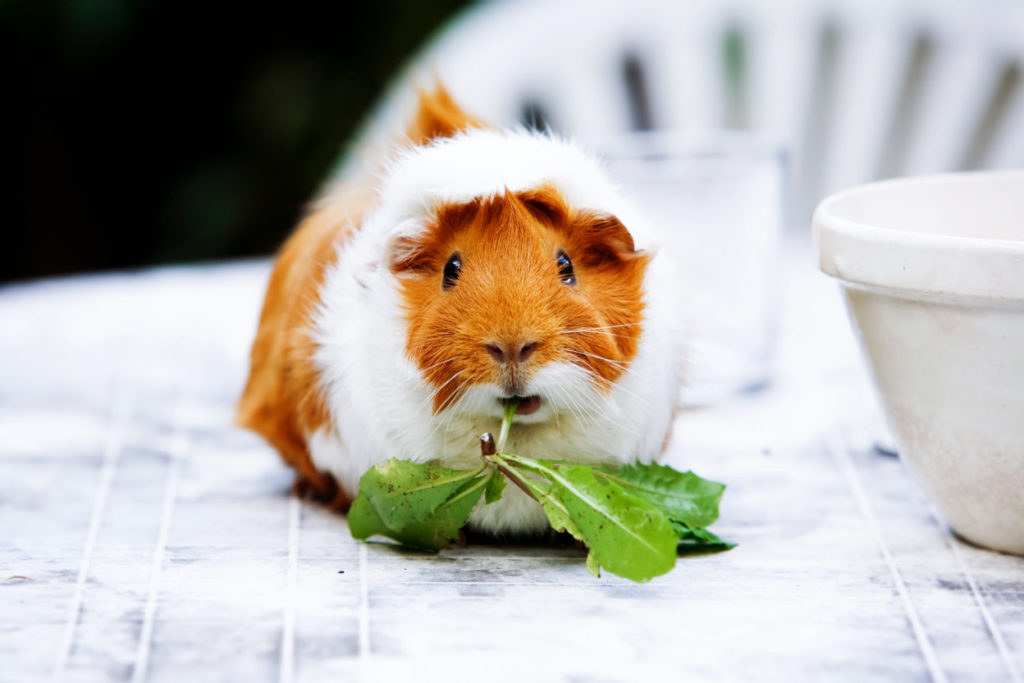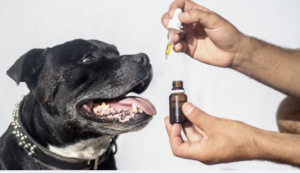With alternative, plant-based medicine rising in popularity among pet owners, cannabidiol (CBD) oil has gained much attention for its therapeutic benefits. While most studies to date have focused on larger pets, there is growing discussion about how medical cannabis could be potentially used to help other fur patients, including ‘pocket pets’.
In this blog post, we discuss the current understanding of CBD oil use in these pets (which includes rats, mice, guinea pigs and hamsters) along with its potential applications and other important considerations.
Understanding CBD and its mechanisms
Cannabidiol is a non-psychoactive compound that comes from the cannabis plant. Its ability to act as a therapeutic treatment is based on how CBD interacts with the endocannabinoid system (ECS), a biological pathway that is present in mammals. The ECS plays a crucial role in regulating various physiological processes and maintaining homeostasis, also known as the body’s ‘status quo’.
Potential benefits of CBD oil in pocket pets
- Pain and inflammation management: CBD oil has shown great promise as an analgesic and anti-inflammatory agent in humans and various animal models. While specific investigations on guinea pigs, and hamsters are needed, the potential of CBDl as a way to manage pain in pocket pets was highlighted in this rat model study. The researchers revealed how CBD blocked osteoarthritis pain, and that it was also found to be neuroprotective. Another paper found that CBD had antioxidant and anti-inflammatory effects in rats with MCT-induced pulmonary hypertension.
- Stress and anxiety relief: Stress and anxiety commonly affect pocket pets, and managing these conditions can be complex. In both humans and dogs, CBD oil has been shown to have anxiolytic properties, which can help to reduce anxiety-related behaviours and promote relaxation. Specifically, research has explored the anti-panic effects of CBD in mice, while another study also confirmed that cannabidiol had the ability to decrease fear-induced behaviours in male Swiss mice.
- Gastrointestinal health: Some pocket pets can experience gastrointestinal symptoms that stem from a range of health ailments. Due to the role the ECS plays in the gastrointestinal system, some studies have highlighted the potential of CBD as a treatment to help conditions that commonly affect the gut, such as colitis. While further research is needed, this review summarises key findings to date in this space, including the effects of CBD on gastrointestinal pain and inflammation highlighted in rat and mice model studies.
Before using CBD oil as a treatment in pocket pets
While there is a growing number of studies on the therapeutic use of CBD oil in humans and, more recently, in larger pets, there is still just limited research on CBD use in pocket pets. It’s crucial this research be undertaken so the veterinary community can determine the efficacy, dosage and side effects of this treatment in a range of species.
Until this research becomes available, it is paramount that the use of medicinal cannabis as a treatment in pocket pets is approached with caution, care and veterinary expertise.
- Consult with a vet specialising in medical cannabis
Before considering the use of CBD oil or any other supplement, it is always recommended to consult with a veterinarian who is experienced in medicinal cannabis and the care of pocket pets. They can provide guidance on appropriate dosage, administration methods, and potential interactions with other medications.
- Ensure product quality and purity
It is important to ensure that any CBD oil products used are of high quality, are pure, free from contaminants, and are accurately labeled in terms of their CBD concentration. It’s recommended that veterinarians and pet owners work with an organisation like CBD Vets Australia, which ensures that all products are quality tested and adhere to strict manufacturing standards.
- Monitor for species-specific sensitivities
As we know, the term pocket pets refers to a variety of different pets, each with distinct physiologies. They may well have unique sensitivities and responses to CBD oil, which we hope that future studies will be able to explore in greater detail. Until the results of such research are available, it is vital that veterinarians begin with a low dosage of CBD oil and closely monitor a pet’s behaviour, symptoms and well-being over time.
In summary
While research on CBD oil use in rats, mice, guinea pigs, and hamsters is overall limited, it holds great potential as an alternative therapeutic approach to manage pain and inflammation, anxiety and stress, and digestive health in pocket pets. Until more studies in this space are completed, it is essential to seek the input of an experienced veterinarian who can offer species-specific guidance to ensure the well-being of pocket pet patients.
Contact our team at CBD Vets Australia to chat more about how medicinal cannabis can be accessed and prescribed for animals of all sizes.







